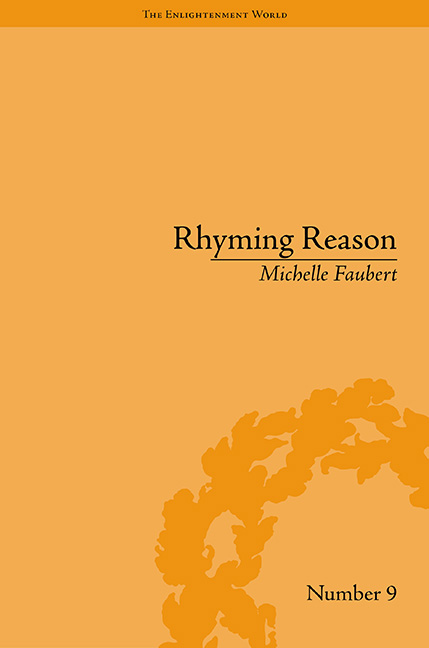Book contents
- Frontmatter
- CONTENTS
- Dedication
- Acknowledgements
- Preface: Psychologist-Poets, Disciplinary Power and the Modern Subject
- Introduction: Romantic-Era Psychologist-Poets and the Historical Context of Early British Psychology
- 1 Erasmus Darwin, James Beattie and Nathaniel Cotton as Pre-Romantic Psychologist-Poets
- 2 The Human Touch: Thomas Bakewell, Andrew Duncan Sr, John Ferriar and Moral Management
- 3 Thomas Trotter, William Perfect and Thomas Beddoes: Nervous Illness and Social Hygiene
- 4 The Unelected Legislator: Associationism and Thomas Brown's Subliminal Poetic Lessons
- Conclusion: Thomas Forster, Phrenology and the Reification of the Disciplines
- Notes
- Works Cited
- Index
Introduction: Romantic-Era Psychologist-Poets and the Historical Context of Early British Psychology
- Frontmatter
- CONTENTS
- Dedication
- Acknowledgements
- Preface: Psychologist-Poets, Disciplinary Power and the Modern Subject
- Introduction: Romantic-Era Psychologist-Poets and the Historical Context of Early British Psychology
- 1 Erasmus Darwin, James Beattie and Nathaniel Cotton as Pre-Romantic Psychologist-Poets
- 2 The Human Touch: Thomas Bakewell, Andrew Duncan Sr, John Ferriar and Moral Management
- 3 Thomas Trotter, William Perfect and Thomas Beddoes: Nervous Illness and Social Hygiene
- 4 The Unelected Legislator: Associationism and Thomas Brown's Subliminal Poetic Lessons
- Conclusion: Thomas Forster, Phrenology and the Reification of the Disciplines
- Notes
- Works Cited
- Index
Summary
I. The Enlightenment Ideal of Disseminating Knowledge
In this study I will illustrate that many Romantic-era psychologists wrote poems to disseminate information about their profession to a broad audience. So much is evident in Thomas Bakewell's ‘Lines, On Being Told that the Volitions of the Mind Would Overcome the Sense of Bodily Pain’. In this poem, Bakewell (1761–1835) – an asylum owner and author of The Domestic Guide, In Cases of Insanity, a self-help guide on madness – explores current medical debates about psychosomatic symptoms and the power of the mind in a way that is humorous, appealing and illustrative of Bakewell's contention that poetry is essential to his vocation. He uses verse to popularize and debate psychological issues and, as the poem reveals, he even uses poetry to carry out psychological experiments on himself:
Avaunt, thou stoic sophistry,
So falsely call'd philosophy,
That would pretend the mind may gain,
Such power o'er corporeal pain,
That when we mentally are pleas'd,
The body may from pain be eas'd.
Of late, in a most painful hour,
Thinks I, I'll try this mental pow'r
First, poetry to aid me came,
A fav'rite laughter[-]loving dame;
But soon I fouud [sic] her influ'nce gone;
That inspirations she had none:
'Tis true, I rhym'd to a deep groan,
By utt'ring a most piteous moan.
In other cases shall we find,
That an impression on the mind,
Shall overcome corporeal pain,
And sense of feeling quite restrain.
It is a morbid state, most sure,
If we keen suff'rings can endure,
Without our feeling what they are;
As sometimes maniacs will declare.
But while our intellects are clear,
This anguish must be cause of fear;
And as a truth, we may maintain
A diff'rence betwixt ease and pain.
Quite aside from Bakewell's final reference to madness as the scale by which he judges the soundness of the theory in question, he makes reference to his profession as an asylum owner and psychologist in the most powerful way at the poem's commencement.
- Type
- Chapter
- Information
- Rhyming ReasonThe Poetry of Romantic-Era Psychologists, pp. 1 - 28Publisher: Pickering & ChattoFirst published in: 2014



